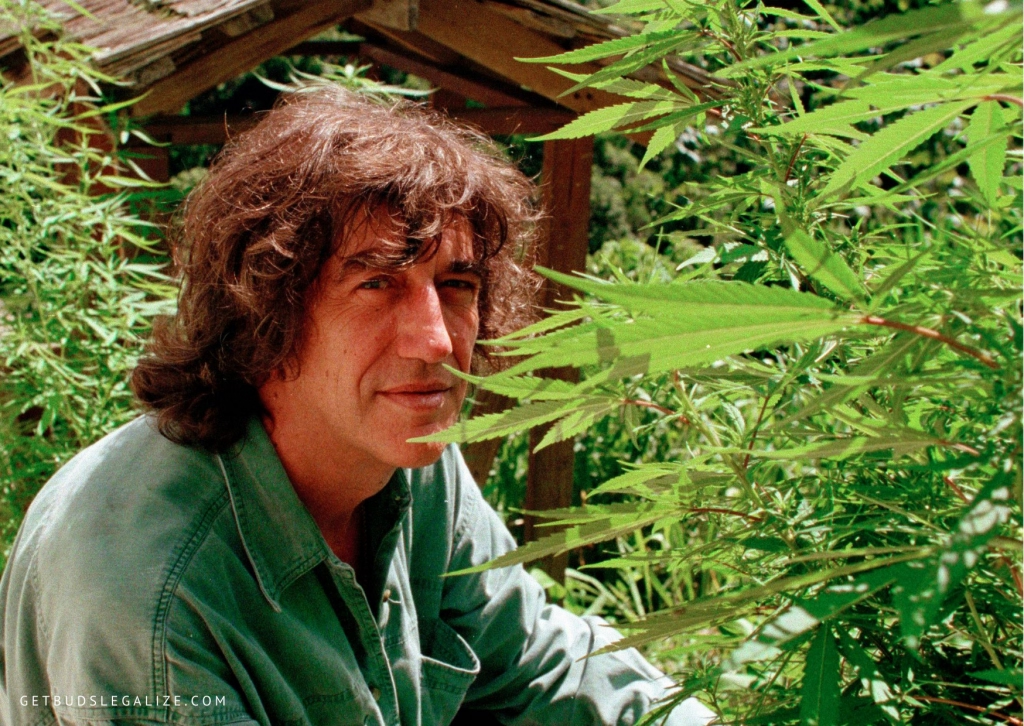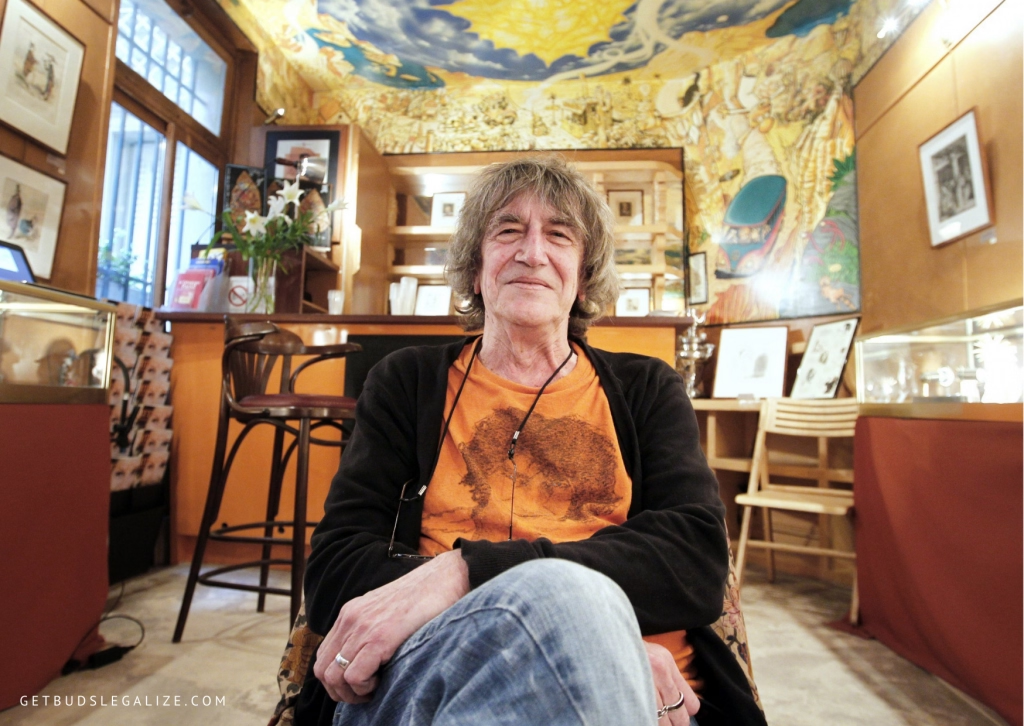Howard Marks: From Infamous Cannabis Smuggler to Iconic Advocate for Legalization
From the depths of international drug trafficking to the heights of global reform, Howard Marks’s journey is one of transformation, resilience, and defiance against an unjust war on drugs. A man once known for smuggling tons of cannabis, Marks became one of the most iconic advocates for legalization, challenging the very system that had once defined him.
In this post, we explore how his life not only defied the odds but also inspired a global movement for cannabis reform.
A Rebel with a Cause: Early Life and Intellectual Curiosity
Born on August 13, 1945, in Kenfig Hill, Wales, Howard Marks grew up in a quiet, working-class environment. Even as a child, Marks displayed an intense intellectual curiosity that set him apart from his peers. He excelled in literature and academics, which eventually earned him a place at the prestigious University of Oxford. This would mark the start of a journey that led him from academic success to the world of international smuggling.
At Oxford, Marks was introduced to the counterculture movements of the 1960s, experiencing the freedom of the hippie lifestyle. It was here that he encountered cannabis for the first time, and his growing disillusionment with societal norms and government policies would lay the groundwork for his future path.

Building a Global Cannabis Empire: From Smuggler to Kingpin
In the early 1970s, Marks’s foray into the illicit drug trade began modestly. However, his keen intellect, vast network of contacts, and logistical expertise quickly propelled him to the top of the cannabis smuggling world. Within a few years, his operation spanned continents—Europe, the United States, and parts of the Middle East.
At the peak of his empire, Marks was trafficking tons of cannabis, using covert methods like shipping containers and private planes to avoid detection. His network, built on fake identities and a global recruitment system, allowed him to evade capture for years, despite the vast scope of his operation.
Marks didn’t just smuggle cannabis—he revolutionized the drug trade, creating a sophisticated underground economy. His ability to navigate the legal and logistical challenges of the drug business cemented his place as one of the most successful drug traffickers of the 1970s and 1980s.
The Fall: How Marks’s Arrest Sparked a New Chapter
However, no empire lasts forever. In 1988, after years of careful planning and secrecy, Marks’s world came crashing down. Arrested in the United States and charged with drug trafficking, he was sentenced to 25 years in a U.S. federal prison.
His arrest was the result of years of surveillance and a coordinated investigation by law enforcement agencies, and it marked the end of one chapter of his life.
But instead of succumbing to despair, Marks used his time in prison for deep reflection. In isolation, he began to critically analyze his past and, more importantly, the global cannabis prohibition. This period of introspection would set the stage for his transformation from smuggler to advocate.

Prison Writing: Mr. Nice and the Catalyst for Change
While incarcerated, Marks penned his memoir, Mr. Nice, which would later become a bestseller. Published in 1996, the book offered a candid look at his life as a smuggler but also served as a sharp critique of global drug laws and the political forces that fueled the war on drugs.
Through his storytelling, Marks presented cannabis not as a dangerous drug, but as a relatively harmless substance that had been criminalized out of political and social fear.
The memoir quickly became a key text in the cannabis advocacy movement. It was more than just a story of crime—it was a call for reform. Marks’s witty, intelligent prose challenged the status quo, exposing the hypocrisies of the war on drugs and sparking critical discussions about cannabis legalization.
Life After Prison: Becoming the Face of Cannabis Legalization
Marks’s release from prison in 1995 marked the beginning of a new chapter in his life. Instead of fading into the background, he chose to use his newfound freedom to advocate for cannabis legalization. Marks argued that cannabis should be regulated and treated like alcohol and tobacco—substances that were far more dangerous but legally available in many parts of the world.
Over the next few years, Marks became an outspoken voice for cannabis reform, speaking at conferences, writing articles, and appearing in interviews. His smuggling past gave him unique credibility as an advocate, as he could speak firsthand about the failures of prohibition. His eloquence and charm made him a compelling figure in the fight for cannabis legalization.

The Lasting Legacy: Marks’s Enduring Influence on Cannabis Reform
Howard Marks’s legacy as a cannabis advocate cannot be overstated. In the years following his release, he became a symbol of resistance against the oppressive drug laws that defined much of the 20th century. His advocacy extended beyond just the cannabis trade—it represented a fight for justice, personal freedom, and a fairer approach to drug policy.
Through his speeches, writings, and personal stories, Marks played a pivotal role in shifting public opinion about cannabis and challenging the negative stereotypes associated with it. His influence helped set the stage for the legalization of cannabis in several regions, including parts of the United States and Canada.
The Road to Legalization: Howard Marks’s Enduring Influence
Howard Marks’s story is not just one of crime, it is one of personal transformation, resilience, and the courage to challenge unjust norms. His transition from infamous smuggler to a passionate advocate for cannabis law reform demonstrates the power of reinvention and the ability to effect change.
Today, his legacy lives on through the continued progress of cannabis reform worldwide. Marks’s voice remains a guiding force, inspiring new generations to continue the fight for justice and a more compassionate approach to drug laws.
Howard Marks proved that even the darkest experiences could be a force for positive change. His story continues to inspire those working toward a more just, equitable world, where the criminalization of cannabis is nothing more than a painful chapter in history.
FAQ: All You Need to Know About Mr Nice and Cannabis Legalization
Howard Marks, also known as Mr Nice, was a Welsh drug smuggler turned cannabis legalization advocate. His friendly demeanor earned him the nickname Mr. Nice, which he later adopted for the title of his bestselling memoir that chronicles his life and views on cannabis legalization.
Marks was one of the most influential cannabis smugglers in the 1970s and 1980s, running an international operation that spanned multiple continents. He played a key role in the global cannabis trade and was known for his cleverness and ability to avoid detection.
The memoir Mr. Nice challenged the stigma surrounding cannabis by offering an honest critique of cannabis prohibition. Marks’s writings encouraged public discourse on cannabis legalization and helped build a foundation for future reform.
After being arrested in 1988 and sentenced to 25 years in prison, Marks spent seven years in U.S. federal custody. During this time, he wrote Mr. Nice and became a vocal critic of the war on drugs, advocating for the legalization of cannabis after his release.
Marks’s legacy lies in his role as a cannabis advocate who used his personal story to challenge laws criminalizing cannabis. His memoir and advocacy have inspired generations of activists pushing for cannabis reform worldwide.



















